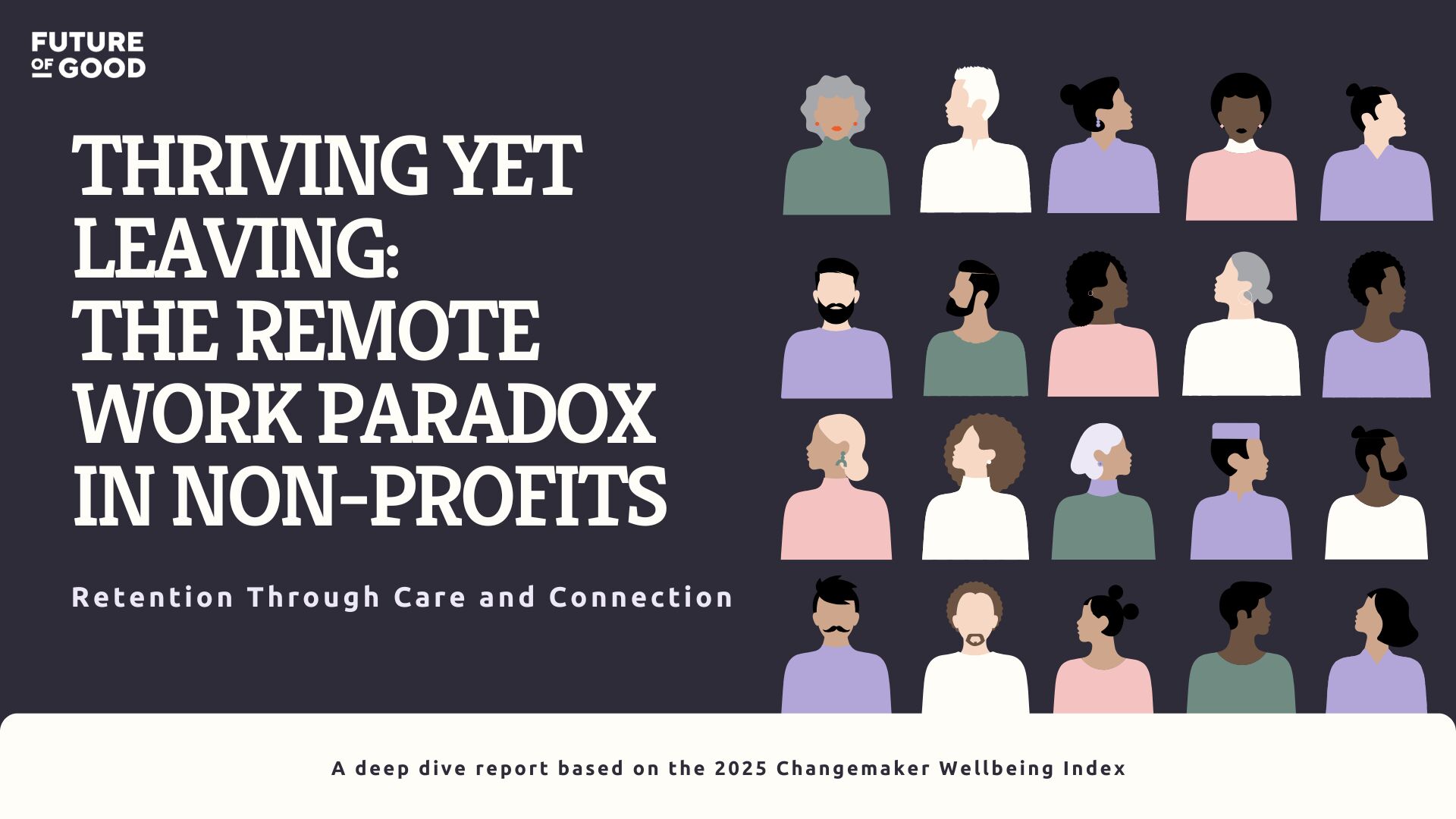
Remote and hybrid non-profit workers report better work-life balance. They feel happier and healthier. Yet they are twice as likely to consider quitting as staff working on-site.
The data shows why: when remote workers feel lonely or disconnected, they leave. Mission matters. Connection matters. Teams need more than flexibility. They need belonging.
Key highlights:
This report offers practical steps to address retention, improve onboarding, strengthen mentoring, and invest in moments to connect face-to-face.
Built on data from the Changemaker Wellbeing Index, this deep dive looks at turnover, loneliness, caregiver pressures, and gaps in support. You will get practical steps to strengthen retention, culture, and connection.
This report is part of the Changemaker Wellbeing Series, a Future of Good member-exclusive experience with editorial stories, reports, and two virtual symposia to help teams build healthier workplaces.
➡️ Future of Good members: download your report below.
➡️ Not yet a member: join with your team to unlock access.
Download now and learn what remote work means for your people and your impact.
In partnership with Future of Good, Common Good Strategies led the survey design, and Steven Ayer, president of Common Good Strategies, wrote the latest report.
About Common Good Strategies
Common Good Strategies is a Canadian research and strategy consultancy bringing over 15 years of experience in non-profit research, policy analysis, and sector leadership.